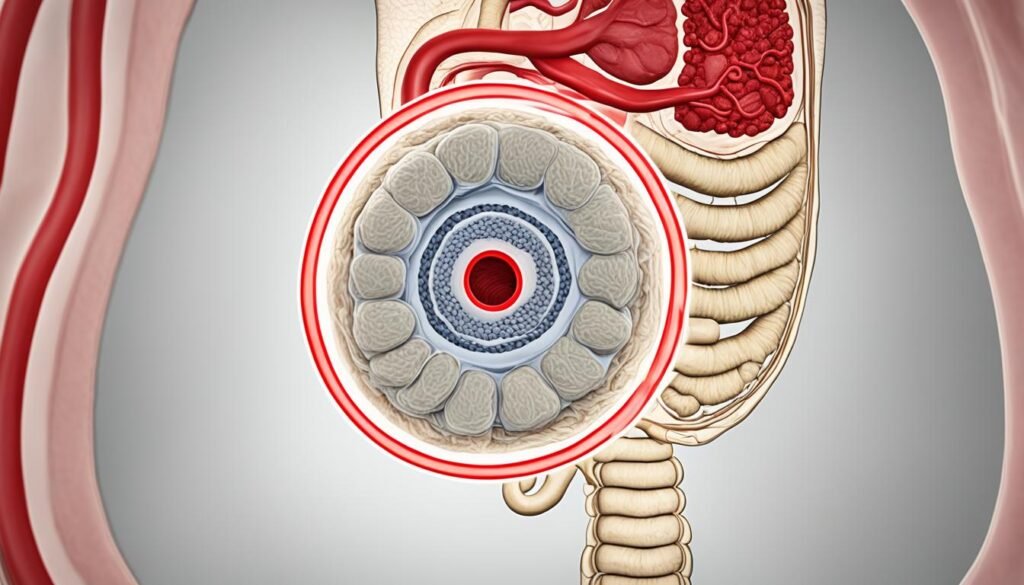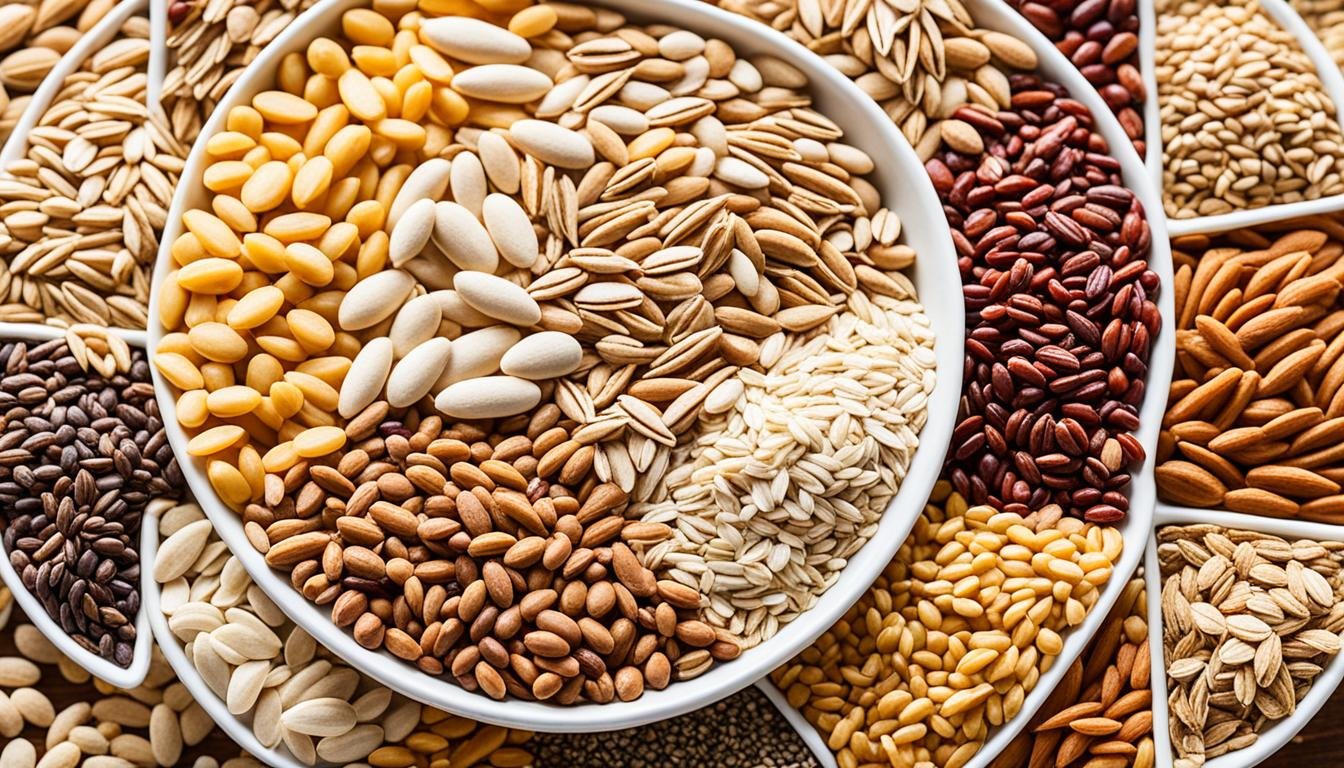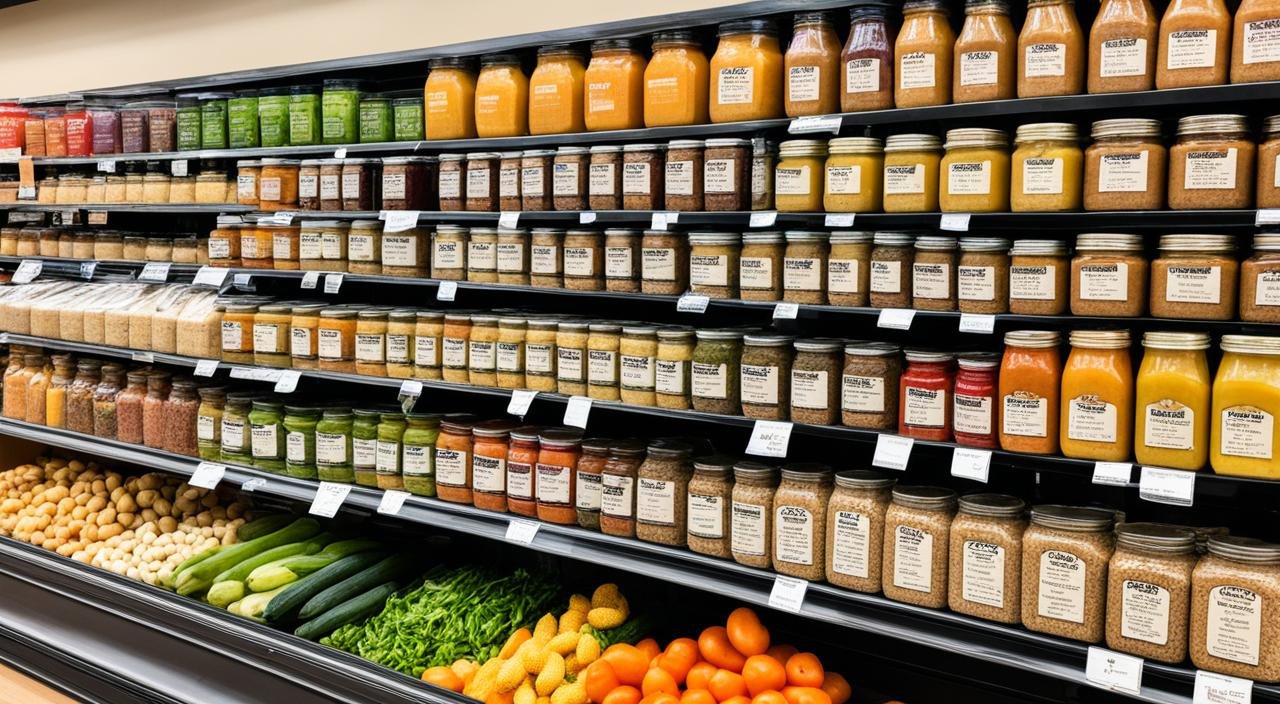Many Americans have stopped eating gluten. They say a gluten-free diet helps them lose weight, feel more energized, and healthier. Gluten is just a protein in some grains, so it’s not bad by itself. But, some people avoid bread, crackers, and pasta. They are on gluten-free diets.
However, gluten is in many foods we don’t even think about. It’s in salad dressings, soy sauce, mustard, baked beans, and even beer. So, if you want to cut out gluten, it can be really hard and make your food choices more difficult, time-consuming, and costly. This brings up a big question: Is gluten-free really good for your health? And, is it safe to avoid gluten? This article will look at the truth about gluten and if being on a gluten-free diet is needed for your health.
Key Takeaways
- An estimated 2 million Americans have celiac disease, a condition that requires a strict gluten-free diet.
- 1 in 3 American adults avoid wheat to steer clear of gluten, despite most not having a true gluten intolerance or sensitivity.
- A gluten-free diet can provide health benefits for those with autoimmune diseases or irritable bowel syndrome (IBS), but may not be necessary for most people.
- Eliminating processed foods, rather than gluten itself, is often the key driver of weight loss and improved energy on a gluten-free diet.
- The global gluten-free product market is projected to reach $14 billion by 2032, indicating the continued rise in gluten-free popularity.
What is Gluten?
Gluten is a protein found in wheat, rye, barley, and some other grains. It gives bread and pasta their chewy texture. Imagine it as the glue that holds these foods together.
But, some people can’t eat foods with gluten. It makes dough stretchy and thickens soups. Without gluten, these foods feel and taste very different.
Gluten as a Protein
Gluten is not just one protein. It’s a mix of different ones found in grains. Wheat has gliadin and glutenin. Meanwhile, barley’s protein is hordein. These are hard to break down and might bother some people’s bodies.
Sources of Gluten
Gluten mostly comes from wheat, rye, barley, and a mix called triticale. Oats are usually gluten-free. But, they might get mixed with gluten grains during processing.
Gluten’s Role in Food
Picture gluten as the glue in bread, pasta, and more. It makes them soft and stretchy. It also makes sauces and soups thicker. Take gluten away, and these foods change a lot.
Gluten Intolerance and Related Conditions
Some people react differently to gluten. These reactions can go from mild sensitivity to celiac disease.
Celiac Disease
Gluten can cause an inflammatory autoimmune disease in some folks. This disease, celiac, affects about 1% of people internationally.
It leads to trouble in the small intestine and not absorbing nutrients right. Signs might include losing weight and having diarrhea.
Wheat Allergy
Some individuals might have an immune system reaction to wheat. This can bring on mild or severe reactions, including anaphylaxis.
Non-Celiac Gluten Sensitivity (NCGS)
If someone feels bad after eating gluten but doesn’t have celiac or a wheat allergy, they might have NCGS. To diagnose it, doctors have to rule out celiac and wheat allergy.

Does Your Body Need Gluten
Many people benefit from a gluten-free diet. This includes those with celiac disease and NCGS. For them, avoiding gluten is a good idea. But, should everyone avoid gluten? That’s still a big question.
Some think our bodies don’t really need gluten. They say our guts can’t handle the types of grain proteins we eat now. Others find the story more complicated. They think things like FODMAPs from wheat might be the real issue. Yet, how many people actually need to avoid gluten is not yet clear.
Some people get stomach problems when they stop eating gluten. If you confused about this, you should know this “can a gluten free diet cause diarrhea“.

Other Populations That May Benefit From a Gluten-Free Diet
The connection between gluten and problems like celiac disease and non-celiac gluten sensitivity (NCGS) is clear. But, studies show that a gluten-free diet might help people who battle certain autoimmune diseases and bowel disorders.
Autoimmune Diseases
Experts offer several explanations on how gluten could trigger or worsen autoimmune conditions. These conditions include Hashimoto’s thyroiditis, type 1 diabetes, Grave’s disease, and rheumatoid arthritis. One idea is that gluten might look like parts of our own body to our immune system. This misguided recognition can spark an attack on our own tissues, leading to autoimmune diseases.
Irritable Bowel Syndrome (IBS) and Inflammatory Bowel Disease (IBD)
Moreover, gluten is tied to conditions like irritable bowel syndrome (IBS) and inflammatory bowel disease (IBD). These include Crohn’s disease and ulcerative colitis. Findings show that gluten might change the normal gut bacteria. It can also make the gut more leaky in people with these diseases. This could make their symptoms worse.
Reasons Why People Feel Better on a Gluten-Free Diet
Most people feel better on a gluten-free diet for several reasons. First, they reduce processed foods since gluten is in many. These include fast food, baked goods, and sugary cereals. These foods are high in calories, sugar, and fats. Many notice they lose weight, have less tiredness, and fewer joint pains. This is mostly because they eat less processed foods. It’s not only about cutting gluten.
Weight Loss
The weight loss part of a gluten-free diet comes from avoiding processed and refined carbs. It’s important to watch portion sizes, work out, and eat natural, wholesome foods for staying healthy. Nuts are a good food for many people who don’t eat gluten.
Reduced Fatigue and Joint Pain
People who go gluten-free often say they are less fatigued and their joint pain is less. Eating healthier by staying away from gluten-rich processed foods may be why.
Yet, some only see improvements in brain fog, stomach issues, and skin problems by going gluten-free. This means cutting out gluten can really help some people feel better.
Who Should Avoid Gluten?
Gluten is not good for some people, especially those with celiac disease, wheat allergy, and NCGS. About 1% of the world has celiac disease. Eating gluten hurts their small intestines. People with a wheat allergy could get really sick. This happens because their immune system doesn’t like certain wheat proteins.
Sometimes, gluten makes people sick even if they don’t have celiac or a wheat allergy. This is known as non-celiac gluten sensitivity. It’s interesting to note that people with an autoimmune disease called Hashimoto’s thyroiditis might have a higher chance of having celiac disease. Gluten might also make conditions like IBS and IBD worse.
Many say they feel better without gluten. Still, it’s not clear if everyone should avoid it. To see if cutting out gluten helps, one must first check if they have celiac or a wheat allergy. Watching for symptoms after removing gluten helps figure it out. But, skipping gluten might make some miss out on important vitamins. This is because many foods, like fortified ones, help people get enough B vitamins in the U.S.
I’m Dr. Shivani, a Kolkata-based nutritionist since 2015. After 10 years of igniting a love for healthy eating in young minds as a High School nutritionist teacher, I now help individuals unlock their full potential through personalized diet plans. My passion for writing and sharing nutrition knowledge (through blogs and observations) keeps my practice fresh and fuels my love for the field!







